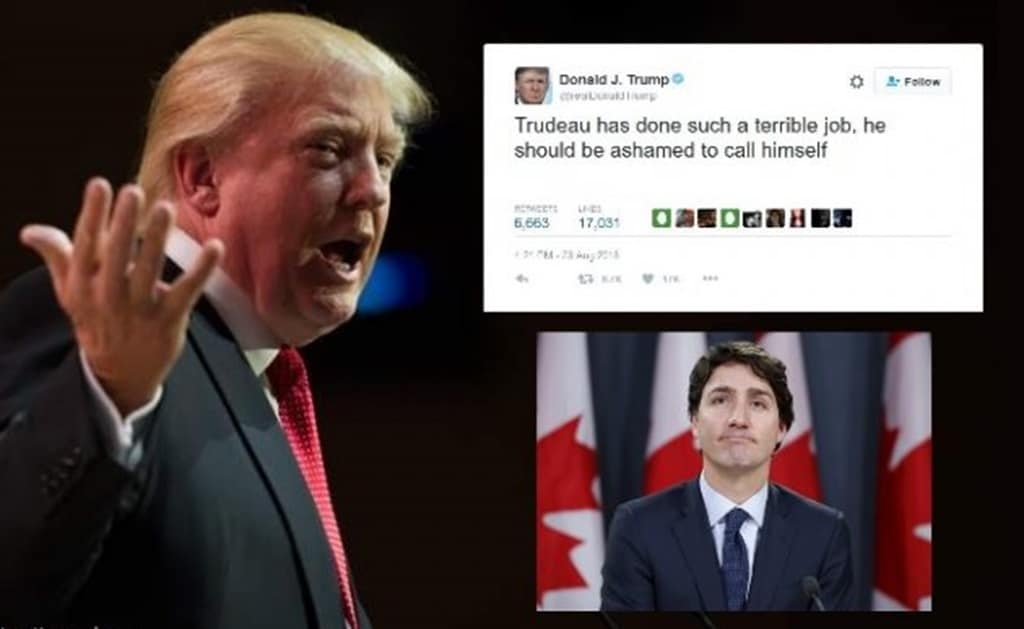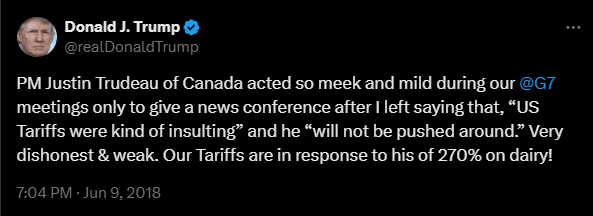Politics
Former NDP Leader Says Trudeau is Top on Trumps Hit List

According to Canada’s former NDP leader, Thomas Mulcair, Trump’s strained relationship with Justin Trudeau has the potential to exacerbate the country’s already challenging social, economic, and environmental situation.
When Trump was last in office, he began making it much more difficult for asylum seekers in the United States. Justin Trudeau saw a political advantage in the contrast and memorably tweeted #WelcometoCanada.
What followed was a tremendous inflow of asylum seekers, most of whom arrived via an unlawful border crossing on Roxham Road south of Montreal. It immediately became a political flashpoint, escalating tensions between the Quebec provincial administration and Ottawa.
After years of refusing to acknowledge the problem, Trudeau was eventually obliged to respond, but the unplanned enormous rise in new arrivals, especially those now arriving from the United States, became a key cause of his electoral fortunes deteriorating across our country.

Trudeau believed that Canada should aim for a population of 100 million by the end of the century. The problem was that this massive increase in our population (from 36 million when Trudeau took office in 2015 to nearly 42 million today) occurred without any planning for health and educational services, especially without considering the impact on the availability and affordability of housing in Canada.
That surge into Canada, sparked by Trump and amplified by Trudeau, could become a tsunami of new arrivals during Trump’s second term. If Trump, as promised, closes his southern border and begins deporting illegal immigrants and asylum seekers, Canada may witness an increase in the number of people crossing our borders.
Trump has also pledged to raise tariffs on manufactured products entering the US. This could harm all provinces, but Quebec and Ontario could be especially badly struck. This is not good news for Trudeau, who keeps saying he’ll run in the next election.
The Beauce region of Quebec, south of Quebec City, extends to the United States border. It has traditionally voted more conservatively than the rest of the province. This region’s peculiarity stems partly from its proximity to the United States and a strong entrepreneurial mindset.
Several Liberals believe Canadians would prefer to keep Trudeau as prime minister because he strongly contrasts Trump. That is wishful thinking. When Trump made his one-and-only trip to Canada for a G-7 conference in Charlevoix, Quebec, Trudeau took potshots at him shortly after he left, according to Thomas Mulcair.
The problem for Trudeau was that Trump was still on Air Force One and could hear his words. He mocked Trudeau (opens in a new tab) for being kind to him in person but then complaining about him behind his back.
Trump has many opponents, and Trudeau has always been on it. Stephen Maher, Trudeau’s biographer, accurately defined Trudeau’s predilection for “pious scolding.” The notion that Trudeau’s ongoing criticism of Trump and his actions could benefit Canada is naive.
Canada and the United States have unique, highly close histories and geographies. Our economies are also very interconnected.
Trump’s disregard for environmental protection would, naturally, clash with Trudeau’s meager efforts to cut greenhouse gas emissions in Canada. Trump will see our fossil fuel resources as his own, and Trudeau will be woefully unable to address the situation.
Mulcair believes that the coming months will provide crucial indicators of what is to come in Canada-United States ties.
Meanwhile, pressure will mount for Trudeau to step down and allow a new Liberal leader to try to build a more trusting relationship with the new American administration.









































